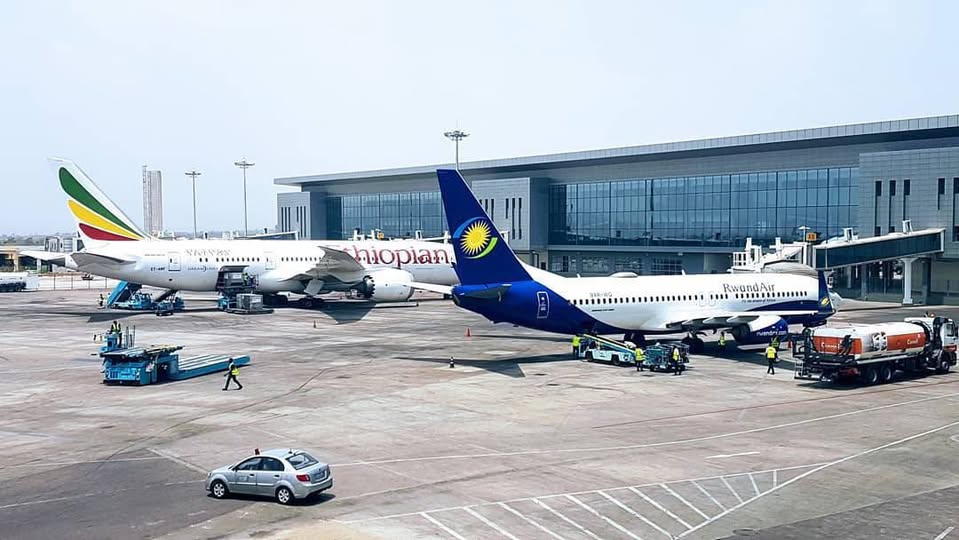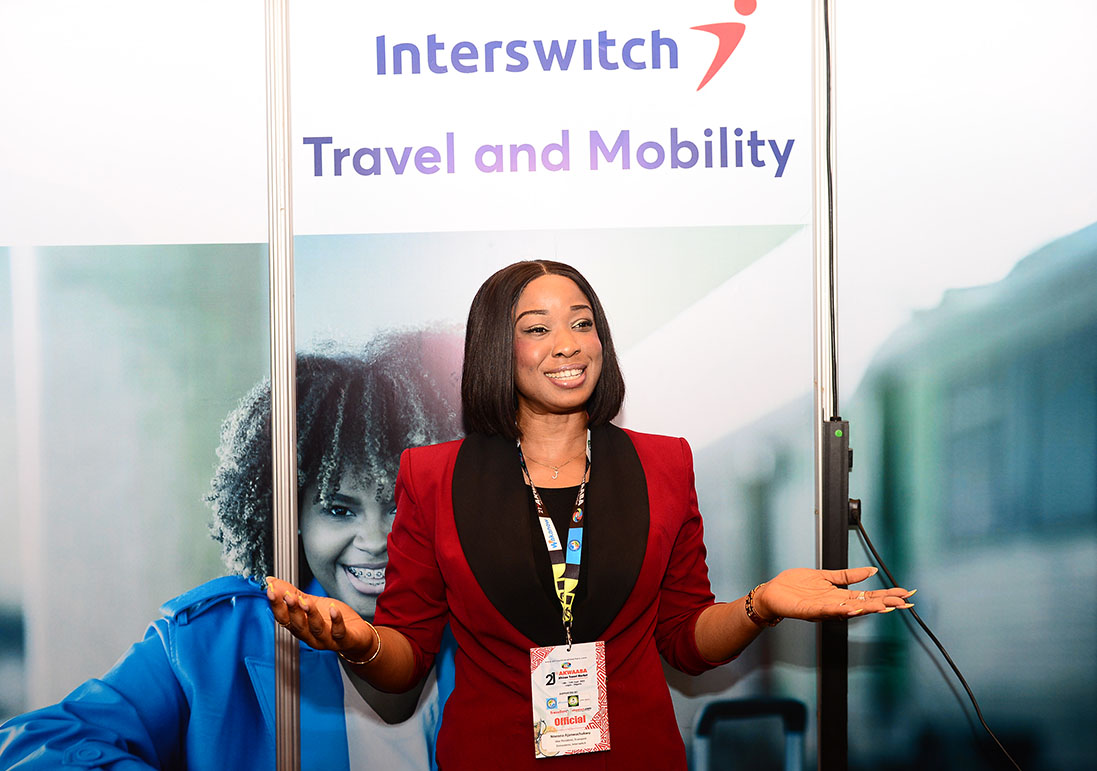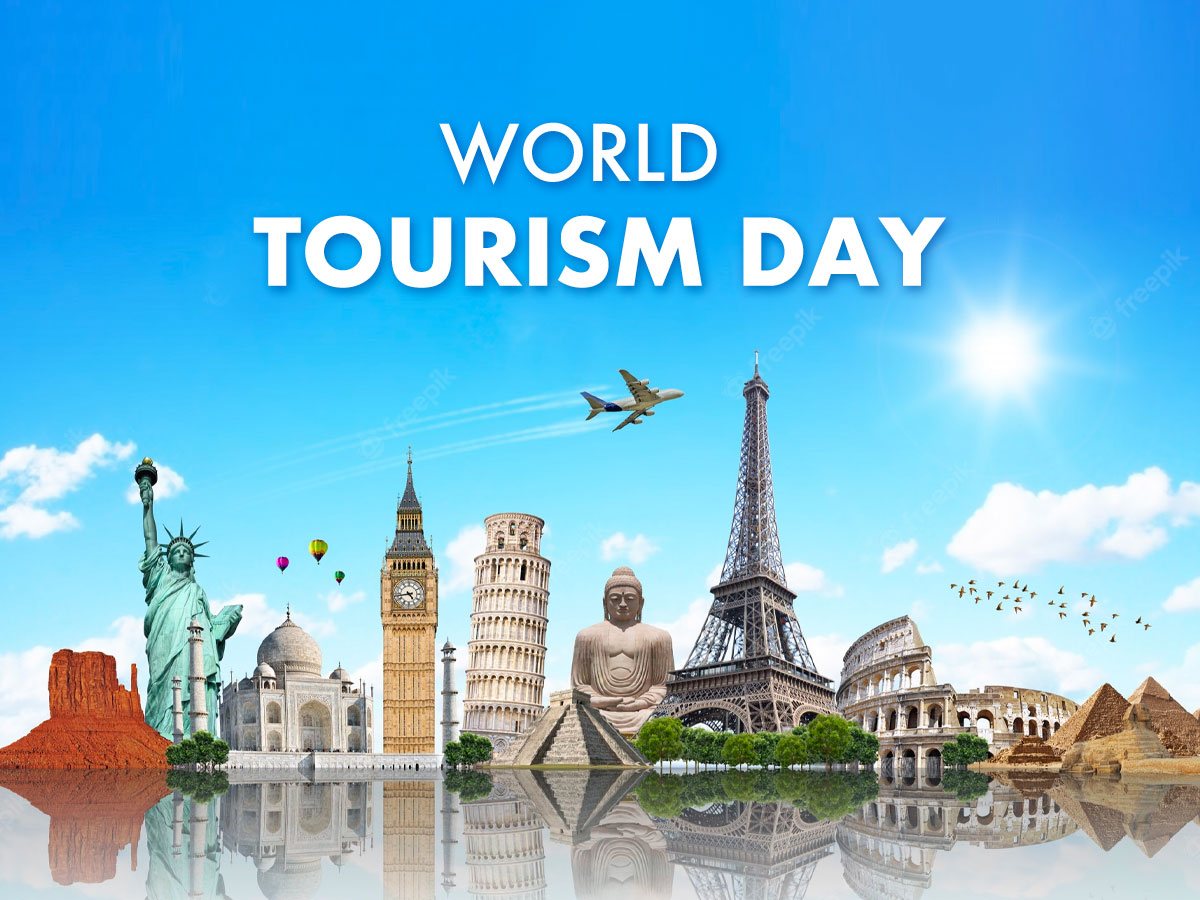Travel/Tourism
Knowing Where Travellers Come From is Key to Meeting Their Wants and Needs

By Rachel Irvine
We live in an age of hyper-personalisation. Every ad you see online, every show you watch, and every book you read is recommended to you based on your tastes and preferences (however badly some companies may do it). The travel industry is no different. No destination or accommodation provider can cater to every single person’s travel desires.
It’s therefore critical that they know who they’re likely to appeal to and market themselves accordingly. A good starting point when it comes to doing so is identifying which countries make up the majority of guests and visitors. That’s because, while there’s obviously variation within countries, it is possible to pick up broad preferences and drill down to more individualised preferences from there.
Doing so not only means that players in the travel and hospitality sector are better placed to understand why they’re hitting the mark with citizens from certain countries, but also that they can ensure they’re targeting the right people with the right message at the right time.
Understanding country preferences
But what do these preferences look like? McKinsey’s The state of travel and hospitality 2024 report provides some useful insights. The report, which reveals that the travel industry is on track for full recovery by the end of 2024 and that luxury travel is the fastest-growing segment, also provides some interesting insights into what people from different countries are looking for in their travel experiences.
Sixty-nine per cent of Chinese tourists, for example, said they plan to visit a famous sight on their next trip, versus the 20% of European and North American travellers who said the same. Respondents living in the UAE, meanwhile, also favour iconic destinations as well as shopping and outdoor activities.
In other words, city hotels might have an easier time attracting Chinese tourists if they’re close to a famous landmark, while somewhere that bills itself as a quiet retreat or which is centred around interesting food experiences may find it easier to attract European and North American tourists.
Attracting German and UK visitors
Those are all important markets for the African travel sector, as are Germany and the UK. According to a report from SA Tourism, outbound travel to sub-Saharan Africa from Germany is growing by 21.2% annually. And in the first quarter of 2024, 125 420 UK tourists visited South Africa alone, a 5.3% increase on 2023. In Kenya, the UK and Germany were fourth and sixth in terms of 2023 tourist arrivals to the country, growing by 19% and 46% respectively. It’s therefore especially critical to know what the preferences for these markets are too.
According to the McKinsey survey, both Germans (45%) and UK citizens (38%) place importance on “getting away from it all”. Both also like beach getaways, expressing “soaking in the sun” at twice the rate of American respondents as the main reason they travel.
A study from TGM Research, meanwhile, found that the top three needs for German tourists are quality and comfort, security, and competitive prices. Their favoured activities are beach and leisure, cultural and gastronomic, and shopping. While UK residents have the same top three needs, they’re more security conscious than Germans. They’re also more invested in beach and leisure activities than their German counterparts.
Another growing travel trend is sustainability. According to a 2022 report carried out by Opinium on behalf of the Spanish Tourist Office, 86% of UK tourists value sustainability as either ‘important’ or ‘very important’ when selecting a holiday destination. A 2023 study by Germany’s Environmental Protection Agency (UBA), meanwhile found that “61% of the population have a positive attitude towards sustainable holiday travel.” This shows that destinations and providers targeting these markets can gain mileage by punting their green credentials, but only if they’re actually earned.
Interestingly, neither value traditional hospitality marketing initiatives such as loyalty programmes and hotel branding as much as visitors from China, the UAE, and North America. Make no mistake, there’s still value in such programmes but it does show that there’s room for innovation in these markets, particularly in the luxury segment.
The right marketing partner
Of course, knowing what a country’s preferences are and marketing to those preferences are two different things. It’s therefore critical to choose marketing partners that don’t just know how to market effectively according to specific insights but also have deep knowledge and understanding of the markets you’re trying to reach.
That’s important for a few reasons. The first is that they can ensure that your messaging will actually land in those markets. They understand what tone and language to use and also which platforms to target with that messaging. Perhaps most importantly, however, they can take the insights around a particular market and drill deeper into it, providing additional levels of personalisation.
Positioned for growth
Ultimately, even as travel numbers to Africa from the UK, Germany, and other markets keep growing, players across the hospitality sector must remember that success isn’t guaranteed. That means understanding their customers as deeply as possible and working with experienced marketing and communications partners who can turn those insights into results.
Rachel Irvine is the CEO of Irvine Partners
Travel/Tourism
Russia Facilitates Travel, Tourism for Africans

By Kestér Kenn Klomegâh
Russian Foreign Minister, Sergey Lavrov, has reiterated the official statement on expanding visa-free travel between Russia and Africa, signaling Kremlin’s earlier position on facilitating people-to-people movement and raising cultural interaction. The question of ‘visa-free’ travel and tourism dominated discussions during the first and second Russia-Africa summits, as a step to embrace new bilateral relations and soft-power diplomacy with Africa.
While ‘visa-free’ travel could be interpreted as a potential driver for boosting tourism business, Sergey Lavrov’s definition limited this policy only to ‘Africans holding diplomatic passports’ and largely excludes political elites and business executives looking to develop entrepreneurial connectivity to Russia. The broader ambition is to focus on Africa’s middle class, estimated at 380 million envision as the constituting a huge tourism market, which is twice Russia’s population.
The Russian Ministry of Foreign Affairs has further underlined the fact that the implementation of a ‘visa-free regime’ with all African countries aims at strengthening cultural relations with the continent. That announcement filled the local Russian media from Moscow to Vladivostok. Later, the Ministry clarified that the ‘visa-free regime’ for African countries was still under serious review. Diplomatic talks with various countries on the drafts of visa-free travel agreements were underway at different stages, as each had its specific requirements. There was a need to categorise African countries into groups.
This initiative is within the framework of the Joint Action Plan (2023-2026) adopted at the second summit in St. Petersburg. From investigations, Russia has ‘visa-free agreements’ with only six African countries. The visa-free regime only applied to African countries that signed agreements with the Foreign Ministry. Within the agreements, only holders of diplomatic passports are permitted under this consular agreement. According to sources monitored, agreements would be signed after successful negotiations with Russian authorities.
The Head of the Russian Foreign Ministry’s Consular Department, Alexey Klimov, explained in an interview with local Russian media: “Russia is currently working out travel agreements on abolishing visa requirements and providing visa-free entry for short-term trips, usually up to 90 days, with several friendly states, nine of them being the countries of Africa and the Middle East.”
“As always, we will immediately inform the public about the concrete results achieved and embodied in documented bilateral agreements,” Klimov concluded, the full transcript posted on the official ministry’s website.
With the changing times, Russia has been pursuing an integrative, multipolar approach in its relations with friendly countries around the world, including those in Africa. During these past few years, Asian countries, such as China and India, have been granted such short-term visa-free privileges. In practical terms, this policy boosts tourism. It is noticeable that Russia remains a holiday destination for Africa’s political elite, corporate business leaders, and the middle class. But undoubtedly, African politicians and corporate business leaders highly prefer to spend their vacation in the United States and Europe. Some Asian destinations are becoming increasingly popular as a preferred choice for recreation. That trend is unlikely to change; it will remain as such for the next few decades.
Tourism topic at Russia-Africa summits
Following the Russia-Africa summits, both Russia and Africa adopted joint declarations—in fact, comprehensive documents that outline various parameters for elevating cooperation to a new qualitative stage.
Tourism is one of the most highly praised spheres during discussions. Brilliant speeches called for the frequent exchange of cultural groups and the taking of comprehensive measures to promote a broad scope of cultural and tourism collaboration between Russia and Africa.
Ultimately, to boost compelling economic interests and foster cooperation, frequent interactions are necessary. The frequency of interaction should not be limited to summits and conferences alone. Some basic strategic steps and measures are also required to encourage simple holiday travels to both regions.
These are significantly missing in the current relations between Russia and Africa. Critics often argue that Russia is contributing considerably to its so-called isolation by closing its doors, especially when there are considerable opportunities to develop high-quality tourism. The African elite could visit Moscow, St. Petersburg, and coastal cities, including Sochi, as well as along the Volga River.
Indeed, playing with flexible visa regimes will not only promote tourism and strengthen cultural ties, but also, in practical terms, will build positive perceptions and further help to neutralise a high level of Western media disinformation across the continent. There is a need to adopt a pragmatic approach to these crucial questions and carefully examine social aspects to enhance people-to-people interactions.
Notably, Russian officials consider visits by heads of African states and ministers to be an essential pillar of their version of building relations in the anticipated multipolar world.
With the current geopolitical situation, Africa’s middle class, estimated at 380 million (twice the population of Russia), has suitable alternative holiday destinations. For now, Moscow and St. Petersburg are not their desired priority for spending vacations. Russian tour operators acknowledge, in a media query with this article’s author, that there is no bilateral entrepreneurial activity between Russia and the African tourism sector. However, on the other hand, African destinations such as Egypt, Morocco, the Maldives, Seychelles, South Africa, and Zanzibar are popular among Russian vacationers.
Most often, Russian and African experts have been discussing how best to promote exchanges of delegations, explore untapped resources, and explore the possibilities of boosting cooperation in the field of tourism, as well as the dissemination of information on tourism opportunities in the Russian Federation and African States.
Over the past few years, the summit declarations have remained tacitly as declarations. In practical terms, the visa-free regime for African countries has mainly remained as official declarations. The fundamental question often asked is for what purposes the summit declarations are made.
Current Tourism Challenges
Russian experts say Chinese, Indians and many Asians are the real potentials, taking advantage of the emerging opportunity to travel to Russia, more than Africa’s middle class and entrepreneurs. In addition, Africa is currently assessed as “reawakening to geopolitical changes” and less capable of taking their own development initiatives based on the huge resources on the continent.
The continent’s challenges still existed. Notwithstanding that, Africa is seemingly moving from the periphery toward the negotiating table. With tourism, engagement remains weak and fragmented. In comparison, in African and Asian tourism, that distinction matters. Africa has a demographic advantage, but the dynamics of tourism perceptions are low.
In the sense of uplifting bilateral partnerships, especially during this time at the heightening of geopolitics, Africa is not simply a reliable partner but has to be treated as such for operating at the tourism development scale. The future of the relationship can be an extremely positive lever, and to take important steps for mapping out diverse ways for its sustainability and expansion. Less arguably, Africa’s political leadership and business executives have explicitly understood the criticality of Russia’s ‘visa-free’ regime, as one of the most geopolitical rhetoric in the contemporary era.
Multifaceted relations with Russia
Russia is ready to build multifaceted relations with Africa. “If Russia Wins, Africa Wins!” remarked Azali Assoumani, President of Comoros, during the late July St. Petersburg summit plenary session in 2023.
With hopes for an enduring collaboration on long-term programs, the Secretariat of the Russia-Africa Partnership Forum was created. And it has since been networking, intending to promote Russia’s economic interests in Africa and to foster mutually beneficial cooperation with African countries.
The Director of the Department of Partnership with Africa of the Russian Foreign Ministry, Tatiana Dovgalenko, in an interview with the TV BRICS channel on July 9, 2025, emphasised that the importance of her new department is its functionality—focus on the comprehensive, integrated development of relations between Russia and the entire African continent, which are experiencing a genuine revival today. It implies that the main task is to implement the decisions which cover a wide range of cooperation areas, including culture and tourism.
While Russian officials focus on their work aimed at increasing Russian presence in Africa, the role of Africa in the Russian Federation is vastly underestimated. At these changing times, officials have to necessarily note with mutual interest the economic presence of Africa, beyond just training students, in the Russian Federation. And, of course, promoting African tourism is not only a promising niche but also a unique pathway for sustaining bilateral cooperation.
Still on the topic of bilateral tourism, Tatiana Dovgalenko rightly pointed out that more active participation by representatives of the African tourism industry in various events in Russia, along with the introduction of visa-free travel to African countries, would help increase the tourist appeal of Africa. Within the Action Plan of the Russia-Africa Partnership Forum for the period 2023-2026, it is anticipated that both Russia and Africa will hold constructive positions on mutual bilateral ties in this emerging multipolar world.
Travel/Tourism
FAAN Launches Energy Efficient Shuttle to Support Abuja Airport

By Adedapo Adesanya
The Federal Airport Authority of Nigeria (FAAN) has unveiled 30 airport electric shuttle which will be used to complement airside and landside logistics.
The shuttle, which comprises 10 vehicles and 20 saloon cars, will cost N10,000 per passenger from the Nnamdi Azikiwe International Airport, Abuja to the City Centre.
Speaking at the event, the governing board chairman of FAAN, Mr Abdullahi Ganduje, said: “Electric vehicles offer clear operational and environmental benefits. They are cleaner, quieter and more energy-efficient, significantly reducing carbon emissions and helping FAAN minimise its ecological footprint. Their use will contribute to healthier airport environments and a more comfortable work and travel experience.
“From a logistics standpoint, electric vehicles also enhance monitoring, coordination and compliance. Their predictable performance and lower maintenance demands improve operational planning, accountability and service reliability. Ultimately, this translates into more efficient, transparent and passenger-friendly services.
“This initiative directly supports global sustainability targets, including International Civil Aviation Organisation’s goal of achieving net-zero carbon emissions by 2050. By embracing electric mobility, FAAN is positioning Nigerian airports to remain competitive, responsible and future-ready.”
Mr Ganduje pledged the commitment of the board to ensure that the initiative is utilised, maintained, and expanded to other airports in the country.
On her part, the managing director of FAAN, Mrs Olubunmi Kuku noted that the agency has secured approval to deploy 100 electric vehicles to operate as airport shuttles at Lagos and Abuja airports.
“We have secured approval to deploy 100 Electric Vehicles (EVs) to operate as airport shuttles at both Murtala Mohammed International Airport, Lagos, and Nnamdi Azikiwe International Airport, Abuja. It is a monumental step towards greening our operations and reducing our carbon footprint.”
“We proudly begin this journey with the first phase: the launch of these 10 state-of-the-art electric shuttle buses. They represent more than just transport; they symbolise cleaner air, quieter terminals, and a to pioneering sustainable infrastructure in Nigerian aviation”.
She expressed optimism that the initiative would be replicated across all airports in the country.
The head of Fleet Operations of Possible EVS, Mrs Abimbola Gyer while stating that the transport fare would be subsidised for passengers, added that operations would commence from 7am to 7pm daily.
“We partner with NEV Electric, the manufacturer of the electric buses. We would be moving passengers from the airport to the city centre at the rate of N10,000 and as demand continues, we will expand our hub. The operations will start from 7 a.m. to 7 p.m daily,” she noted.
Travel/Tourism
Quickteller Travel Secures IATA Certification

By Modupe Gbadeyanka
The travel and tourism service powered by Interswitch, Quickteller Travel, has been issued a certification from the International Air Transport Association (IATA).
With IATA certification, Quickteller Travel is now fully equipped to connect African travellers to global destinations, support airlines and partners with reliable distribution and settlement, and set a new standard for trusted, digitally enabled travel across the continent.
The IATA accreditation reinforces Quickteller Travel’s operational credibility, compliance standards, and ability to deliver secure, efficient, and globally recognised travel services.
It also strengthens the platform’s positioning as a reliable partner for airline bookings, corporate travel management, and end-to-end travel solutions across Africa and beyond.
The certification is a milestone that places the brand among a global network of trusted and accredited travel service providers.
This achievement comes at a time when Africa’s travel and tourism sector is experiencing renewed growth, driven by increased business travel, regional connectivity, and digital adoption.
With IATA certification, Quickteller Travel is poised to offer individuals, SMEs, corporate organisations, airlines, and other travel stakeholders a seamless digital experience, supported by Interswitch’s trusted payment infrastructure.
Integrated into the broader Quickteller and Interswitch ecosystem, Quickteller Travel combines global accreditation with local insight, offering African travellers and businesses a secure, seamless, and digitally empowered experience.
The Vice President for Transport Ecosystem at Interswitch, Ms Nnenna Ajanwachuku, said, “The IATA certification is a strong validation of Quickteller Travel’s operational standards, governance, and commitment to excellence. It enhances trust for travellers, corporate partners, and global airline stakeholders who rely on accredited platforms for secure and transparent travel transactions.
“For Interswitch, this milestone reinforces our mission to build technology-led solutions that unlock access, simplify commerce, and connect Africa to the global economy.”
Ms Ajanwachuku added that the approval would enable Quickteller Travel to deepen partnerships with airlines and travel service providers while offering customers greater confidence, choice, and value.
“Quickteller Travel is not just a booking platform; it is part of an ecosystem designed to make travel more accessible, reliable, and digitally enabled for Africans. Powered by Interswitch’s heritage of trust and innovation, we are building a platform that meets global standards while responding to local travel needs,” she said.
-

 Feature/OPED6 years ago
Feature/OPED6 years agoDavos was Different this year
-
Travel/Tourism10 years ago
Lagos Seals Western Lodge Hotel In Ikorodu
-

 Showbiz3 years ago
Showbiz3 years agoEstranged Lover Releases Videos of Empress Njamah Bathing
-

 Banking8 years ago
Banking8 years agoSort Codes of GTBank Branches in Nigeria
-

 Economy3 years ago
Economy3 years agoSubsidy Removal: CNG at N130 Per Litre Cheaper Than Petrol—IPMAN
-

 Banking3 years ago
Banking3 years agoSort Codes of UBA Branches in Nigeria
-

 Banking3 years ago
Banking3 years agoFirst Bank Announces Planned Downtime
-

 Sports3 years ago
Sports3 years agoHighest Paid Nigerian Footballer – How Much Do Nigerian Footballers Earn


















